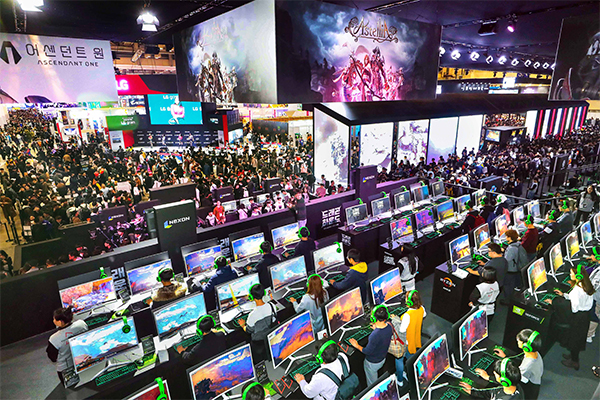South Korea’s game publishers have been granted licenses to operate in mainland China, and industry insiders and analysts predict a bright future for these companies in the country. This comes after several years of grappling with regulatory crackdowns and geopolitical risks in the Chinese market.
The top three South Korean game publishers, Nexon, NCSoft Corp, and Netmarble Corp, have all had their titles approved for commercial release in China, the world’s largest gaming market. These include Nexon’s Dungeon & Fighter (DnF) Mobile, Netmarble’s The King of Fighters All Star, and NCSoft’s Blade & Soul 2.
With at least 18 Korean video games now licensed for release on the mainland since late 2022, these top developers are confident that China’s openness will continue and allow for more titles to be enjoyed by gamers in the future.
This is a significant development for video gaming companies as they naturally prefer to secure licenses for products that have proven performance and achievements overseas. South Korean video game imports already represent a bright spot in the market, according to a report by Shanghai-based video gaming industry research site GameLook.
At least nine major Korean games generated more than 3 billion yuan (US$417 million) in total revenue as of October last year, after being released on the mainland from June to September. This demonstrates the potential of the Chinese market for South Korean gaming companies.
The National Press and Publication Administration, which is responsible for licensing video games in China, recently published a list of 32 imported titles approved for release, including DnF Mobile. Seven Korean titles were also part of the first batch of 44 imports licensed for release on the mainland since a regulatory crackdown in the industry. This is significant considering that there were only two South Korean games that received licenses in the six years prior to December 2022.
South Korea’s ban on cultural imports, including video games, was lifted by Beijing in 2022 after several years of tension between the two nations. South Korea’s game exports to China accounted for more than 38 percent of the country’s total game exports in 2012, making it a significant market for the industry.
DnF Mobile, which was adapted from Nexon’s flagship personal computer game Dungeon & Fighter, has raised expectations in China’s gaming community. Analysts predict that the game’s release in China will help boost revenue for partners Tencent and Nexon.
It is expected that China will approve more foreign games for release after Beijing showed its support for the industry by scrapping a proposed regulation that wiped out billions of dollars of value from Chinese video gaming stocks in December.
While many of the recently approved South Korean games are part of popular franchises that are generally favored in the mainland market, some analysts note that it could be a challenge to introduce old franchises compared to newer, more advanced video games in China. However, for older franchises like DnF, obtaining a license is a matter of using existing resources.
(Source: SCMP | Korea Times)









